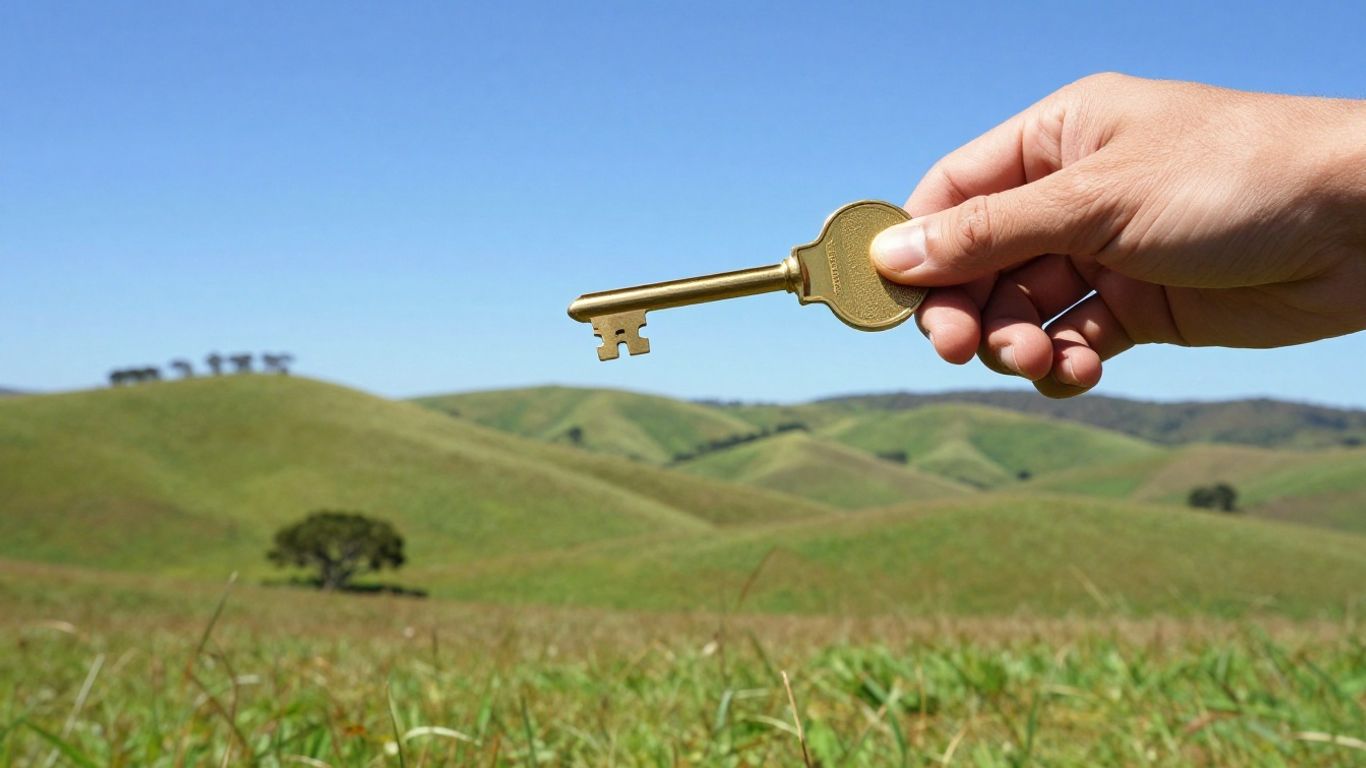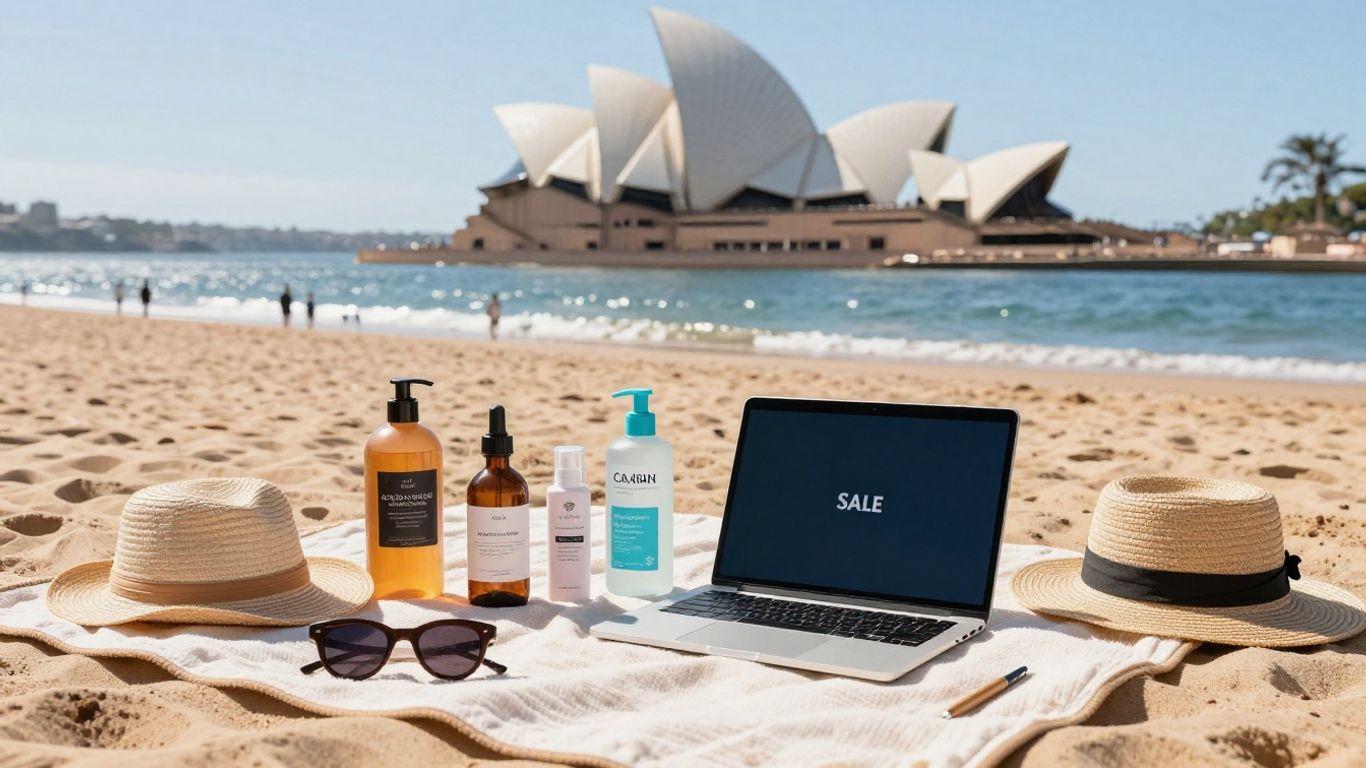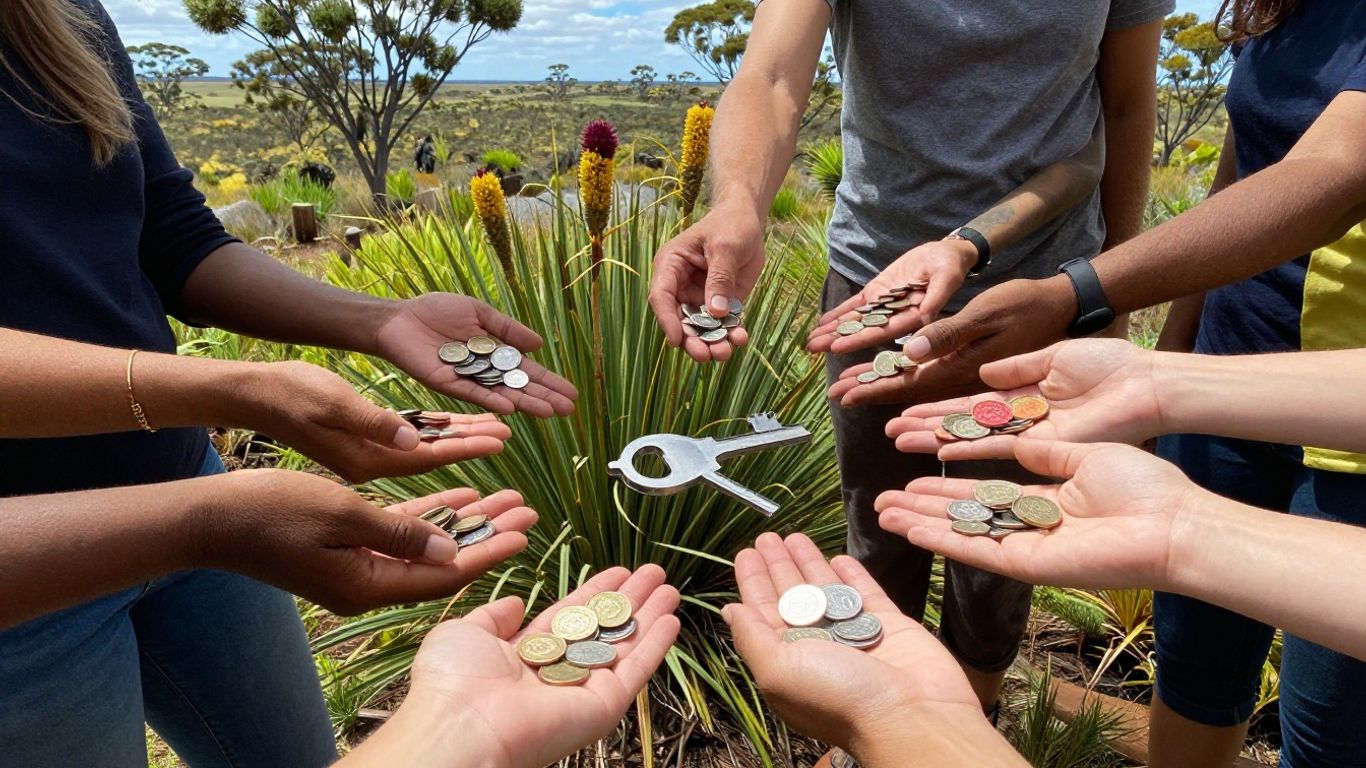Look, managing your money in Australia can feel a bit tricky sometimes, right? With everything going on, it’s easy to lose track of where your cash is actually going. But honestly, getting a handle on your finances doesn’t have to be a huge drama. It’s all about knowing the basic steps to budgeting and sticking with it. We’ll break down how to get started, what to watch out for, and some handy tools to make it less of a chore. Let’s get your money sorted.
Key Takeaways for Aussies
- Figure out your income and all your expenses to see where your money goes.
- Set a clear goal for your budgeting, like saving for a house or paying off debt.
- Build an emergency fund for those unexpected bills that always seem to pop up.
- Use apps and tools designed for Australians to make tracking easier.
- Check your budget regularly and tweak it as your life changes.
Understanding The Australian Financial Landscape
Getting a handle on your finances in Australia means understanding a few key things about how money works here. It’s not just about earning and spending; there’s a bit more to it. Think about the tax system, for instance. Knowing how income tax affects your take-home pay is pretty important. You’ll want to figure out what tax bracket you’re in and what deductions you might be able to claim. This can make a surprising difference to your overall budget. Also, keeping an eye on what’s happening with the economy generally – like interest rates or inflation – can help you make smarter decisions with your money. It’s about being aware of the bigger picture.
Key Components Of Effective Budgeting
- Tracking your spending: You really need to know where your money is going. Grab a notebook or use an app to jot down everything you spend for a month. It might be a bit eye-opening!
- Understanding your income: Figure out exactly how much money you have coming in after tax. This is your starting point.
- Setting realistic goals: What do you want your money to do for you? Save for a house deposit? Pay off a car? Having a clear goal makes budgeting easier.
Income Tax Considerations
Australia has a progressive income tax system. This means the more you earn, the higher the percentage of tax you pay. It’s important to know your marginal tax rate and how it impacts your net income. Also, look into potential tax deductions related to work expenses or investments, as these can reduce your taxable income. Getting this right means you’re budgeting with your actual available money.
Stay Informed About Economic Trends
Keeping up with economic news can help you anticipate changes that might affect your finances. Things like changes to interest rates from the Reserve Bank of Australia, or even global economic shifts, can influence your mortgage repayments, investment returns, and the cost of everyday goods. Being aware helps you adjust your budget proactively. It’s a good idea to have a basic grasp of zero-based accounting principles to manage your spending effectively.
Being financially literate is a big part of managing your money well in Australia. It covers saving, dealing with debt, investing, and of course, budgeting.
Essential Steps To Budgeting For Aussies

Getting your finances in order is a big deal, and for us Aussies, it starts with a solid budget. It’s not about restricting yourself, but more about knowing where your money is going so you can make it work for you. Think of it as a roadmap for your cash.
Set A Budgeting Goal
First things first, what are you actually trying to achieve with your money? Maybe you want to save up for a deposit on a house, pay off some credit card debt, or just have a bit more breathing room each month. Having a clear goal makes sticking to your budget a lot easier because you know what you’re working towards. It gives your spending and saving a purpose.
Calculate Your Total Income
This is pretty straightforward. You need to figure out exactly how much money is coming in each month after tax. This includes your wages, any side hustle income, and any government benefits you might receive. Don’t forget to look at your payslips to get the most accurate figure. It’s important to be realistic here.
Calculate Your Total Expenses
This is where most people find it a bit tricky. You need to track everything you spend money on. Break it down into fixed costs (like rent or mortgage payments, loan repayments) and variable costs (like groceries, entertainment, petrol). It’s a good idea to look back at your bank statements and credit card bills from the last few months to get a clear picture.
Here’s a rough idea of what your expenses might look like:
| Expense Category | Estimated Monthly Cost |
|---|---|
| Housing (Rent/Mortgage) | $XXXX |
| Utilities (Elec, Gas, Water) | $XXX |
| Groceries | $XXX |
| Transport (Fuel, Public) | $XXX |
| Loan Repayments | $XXX |
| Entertainment/Social | $XXX |
| Health/Medical | $XXX |
| Other | $XXX |
Once you’ve got a handle on your income and expenses, you can start to see where your money is actually going. This is the first big step to taking control.
Knowing your numbers is the foundation for making smart financial decisions. It helps you identify areas where you might be overspending and where you can potentially cut back to meet your financial goals.
Building A Solid Financial Foundation
Once you’ve got a handle on your income and outgoings, it’s time to really build something solid with your money. This isn’t just about paying bills; it’s about setting yourself up for the future, whatever that looks like for you. Think of it as laying the groundwork for your financial house.
Allocating Funds For Healthcare
Australia has a great healthcare system, but it’s still wise to plan for medical expenses. Even with Medicare and private health insurance, there can be out-of-pocket costs for things like specialist visits, dental work, or unexpected treatments. Setting aside a specific amount each month, even a small one, can prevent a health scare from becoming a financial crisis. Consider what your private health insurance covers and what it doesn’t, and budget accordingly. This might mean a small monthly contribution to a dedicated ‘health fund’ within your savings.
Building An Emergency Fund
Life throws curveballs, doesn’t it? Your car might break down, you could lose your job, or a family emergency might pop up. An emergency fund is your safety net for these unexpected events. The general advice is to aim for three to six months of living expenses. Start small if you need to – even $20 a week adds up. The key is consistency. Keep this money separate from your everyday accounts, perhaps in a high-interest savings account, so you’re not tempted to dip into it for non-emergencies. Having this buffer means you won’t have to go into debt when the unexpected happens.
Savings And Investment Strategies
Beyond just saving for emergencies, you’ll want to think about your longer-term goals. This could be a deposit for a house, a new car, a big holiday, or even retirement. Saving money is the first step towards building wealth over time. By spending less than you earn, you free up money to put towards these goals.
Here are a few ways to approach savings and investments:
- Set clear savings goals: Know exactly what you’re saving for and how much you need.
- Automate your savings: Set up automatic transfers from your everyday account to your savings or investment accounts.
- Explore investment options: Once you have a solid emergency fund, consider investing. This could be through shares, managed funds, or property. Doing your homework or talking to a professional can help you understand the risks and potential rewards.
Making informed decisions about where your money goes, beyond just the immediate needs, is how you start to build real financial security. It’s about making your money work for you, not just for paying the bills.
Remember, building a solid financial foundation is a marathon, not a sprint. It takes time and discipline, but the peace of mind it brings is well worth the effort. For a roadmap to financial freedom, understanding the essential principles of budgeting is a great start.
Maximising Budgeting Efforts In Australia
Making your budget work harder in Australia means using the right tools and being flexible. It’s not just about setting it and forgetting it; you’ve got to keep an eye on things and tweak as you go. Staying on top of your finances is key to reaching your money goals.
Utilise Technology and Budgeting Apps
There are heaps of great apps out there designed specifically for Aussies. These tools can really help you see where your money is going. They often link up with your bank accounts, so you don’t have to manually enter every single transaction. You can track your spending, set spending limits for different categories, and even get alerts if you’re about to go over budget. It’s like having a personal finance assistant in your pocket.
Regular Budget Reviews and Adjustments
Life throws curveballs, and your budget needs to be able to handle them. Maybe you got a pay rise, or perhaps your rent went up. Whatever it is, you should look at your budget at least once a month. See if your income and expenses have changed and adjust the amounts in each category accordingly. This keeps your budget realistic and useful. It’s a good idea to compare your planned spending against your actual spending to see where you might be going off track.
Engage with Financial Advisors
Sometimes, you just need a bit of expert help. Talking to a financial advisor can be a game-changer, especially if you have complex finances or big goals like buying a house or planning for retirement. They can offer personalised advice based on your situation and help you make smart decisions. Don’t be afraid to ask questions; that’s what they’re there for. Finding the right financial advisor can make a big difference to your long-term financial health.
Popular Budgeting Tools For Australians
Finding the right tools can make a big difference when you’re trying to get your finances in order. Luckily, there are some ripper apps available in Australia that can help you keep track of your money and make it go further. These tools are designed to simplify the process, giving you a clearer picture of where your cash is actually going.
PocketSmith for Financial Forecasting
PocketSmith is a pretty powerful option if you like to plan ahead. It lets you create detailed financial forecasts, so you can see what your money situation might look like down the track. It uses a calendar-based system, which is handy for visualising upcoming bills and income. You can link it up to your Australian bank accounts, and it offers good reporting features to help you track spending and set goals. It’s a solid choice for anyone who wants to get a handle on their future finances.
Goodbudget for Envelope Budgeting
If you’re familiar with the envelope system for budgeting, Goodbudget is a digital take on that. You allocate your income into different digital ‘envelopes’ for various spending categories, like groceries, rent, or entertainment. This makes it really easy to see how much you have left in each area. It’s a straightforward way to manage your money and stick to your spending limits. It’s available and works well here in Australia.
Pocketbook for Expense Insights
Pocketbook is another great app, especially because it’s designed with Aussies in mind. It automatically categorises your expenses after you link your bank accounts, which saves a heap of time. You get insights into your spending habits, and it can even track your bills and send you alerts. It’s a user-friendly way to get a better understanding of your day-to-day spending and make smarter choices. You can find popular budgeting and savings apps on most devices.
Choosing the right budgeting tool really comes down to what works best for you. Think about how easy it is to use, whether it connects to your bank, and how much detail you want in your reports. Don’t be afraid to try a couple out to see which one clicks.
Financial Discipline And Accountability Tools

Sticking to your budget isn’t always easy, is it? Life throws curveballs, and sometimes our best intentions go out the window. That’s where having the right tools for financial discipline and accountability really makes a difference. These aren’t just about tracking numbers; they’re about building habits that help you stay on course and actually reach those money goals you’ve set. Think of them as your personal finance cheer squad, keeping you motivated and honest.
Frollo for Personalised Insights
Frollo is an Australian app that’s pretty good at giving you a clear picture of where your money is going. It syncs with your bank accounts, so you don’t have to manually enter every transaction. This makes it super easy to see your spending patterns and identify areas where you might be overspending. It also helps you set budgets and track your progress towards financial goals, offering personalised tips along the way. It’s like having a friendly advisor in your pocket.
YNAB for Intentional Planning
YNAB, which stands for You Need a Budget, takes a more proactive approach. The core idea here is to give every single dollar you earn a job. This means you’re not just tracking what you spend, but actively deciding where your money goes before you spend it. It encourages intentionality, which can be a game-changer for breaking bad spending habits. It’s a bit of a learning curve, but many users swear by its effectiveness for gaining control.
Maintaining Financial Discipline
Ultimately, the best tools in the world won’t do much if you don’t use them consistently. Building financial discipline is a marathon, not a sprint. It involves making conscious choices every day to align your spending with your budget and long-term goals. Regularly reviewing your progress, being honest with yourself about your spending, and celebrating small wins can all help keep you motivated. Don’t be afraid to adjust your budget as needed; life changes, and your budget should too. For small businesses looking to improve their budget management, methods like zero-based budgeting and rolling forecasts are useful, as is using accounting software like Xero for efficient tracking.
Staying accountable means regularly checking in with your finances. Whether it’s a weekly review of your spending or a monthly deep dive into your budget, consistent engagement is key to making progress and avoiding financial surprises.
Wrapping Up Your Budgeting Journey
So, there you have it. Getting a handle on your money in Australia might seem a bit much at first, but it’s totally doable. We’ve gone through how to figure out where your cash is going, set some realistic goals, and even looked at a few handy apps to help you out. Remember, it’s not about never spending money again; it’s about spending it smarter. Stick with it, make those small changes, and you’ll be well on your way to feeling more in control of your finances. Give it a go – you’ve got this!
Frequently Asked Questions
What’s the big idea behind budgeting, mate?
It’s like making a plan for your money! You figure out how much cash comes in each month and then decide where it all goes – like for rent, food, fun stuff, and saving. It helps you make sure you don’t spend more than you earn and can help you save up for cool things.
How do I even start budgeting?
First, set a goal, like saving for a holiday or paying off a credit card. Then, work out all the money you get after tax. Next, track every dollar you spend for a month or two to see where it’s all going. Finally, make a plan for your money, deciding how much goes to bills, savings, and treats.
Are there any handy apps to help me budget in Australia?
You can use apps like PocketSmith, Goodbudget, or Pocketbook. Some are great for planning ahead, others help you track your spending really easily. It’s all about finding one that feels right for you and makes managing your money less of a chore.
Why should I bother with an emergency fund?
Definitely! It’s super important to have a bit of money set aside for when things go wrong, like if your car breaks down or you get sick. Aim for enough to cover a few months of your essential bills.
How does health stuff fit into my budget?
Think about your health costs. While Medicare covers a lot, having private health insurance or putting aside cash for doctor visits, dentists, or medicines can save you a heap of stress and money down the track. It’s good to be prepared!
How often should I look at my budget and change it?
You gotta check your budget regularly, maybe once a month. See if you’re sticking to the plan. If not, figure out why and make changes. Life changes, so your budget should too! Talk to a money expert if you’re not sure.





